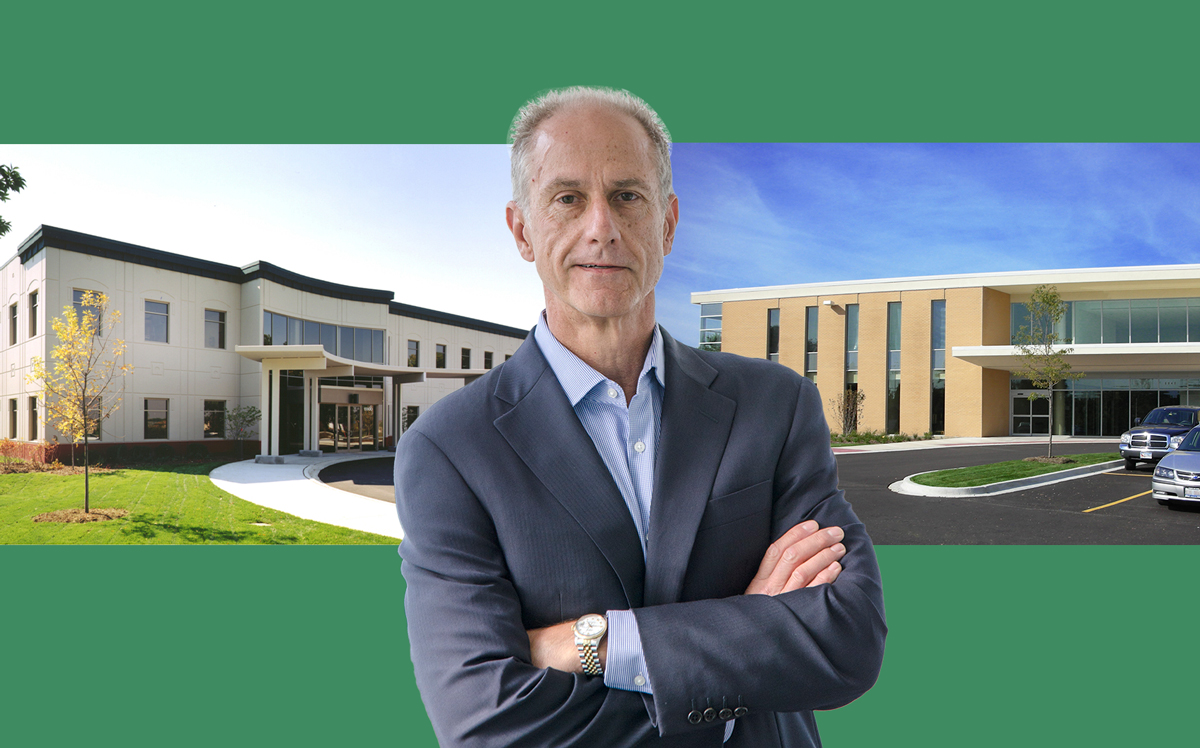Trending
HSA Commercial’s Bob Smietana on the joy of industrial spec development and why he’s not building much in Chicago
CEO of the Chicago-based development firm also discusses how e-commerce isn’t the only game in town and why the marijuana space is a difficult one to dive into

For HSA Commercial Real Estate, it’s a good time to be a spec industrial developer, just not in Chicago.
Bob Smietana, vice chairman and CEO of the Downtown-based development and investment firm, said Cook County Assessor Fritz Kaegi’s new property tax assessments have created uncertainty. Which he said, hurts new construction and has led the company to focus its industrial, health care and retail projects in nearby secondary markets.
HSA last year completed its largest industrial development in the Chicago area, the 750,000-square-foot Heartland Corporate Center that it developed with Clarion Partners in Shorewood, Will County.
Smietana broke into the industry in 1981, the same year HSA was founded. Since then, the firm has expanded into 14 states across the Midwest and Southeast.
E-commerce companies like Amazon have taken an increasing amount of industrial space, but often can’t wait for a ground-up development project. But there is plenty of demand out there, he said.
In Wisconsin, among the projects HSA has undertaken is an industrial site it redeveloped into the 400,000-square-foot Mayfair Collection. The mixed-use property in Wauwatosa includes retail, residential, hotel, restaurant and office space.
HSA is now developing about 3 million square feet on spec, including more than 1 million square feet of industrial development in Indianapolis.
Smietana recently talked with The Real Deal about the value in industrial development, why tall office construction is far riskier and how marijuana-related construction projects are still a risky proposition despite the state’s recreational legalization law.
This interview has been edited for length and clarity.
How is the Chicago industrial market?
I think it’s probably been as good as it’s been in my career. We’re seeing the lowest vacancy rates across the board. We’re seeing 3.5 to 5 percent vacancy rates in general in a lot of the markets in Chicago, and in others, including Nashville, Indianapolis, the suburban Milwaukee area, Columbus, Kansas City. All of these markets are just absorbing product like I’ve never seen before, so vacancy rates are low.
Why does HSA focus on industrial spec projects?
Particularly in this market right now, the timeline for getting distribution buildings built is so short. Everything’s being compressed by the whole distribution market and how we store and distribute goods, and get them to the consumers or final users. The timeline has gotten so much shorter, that most users, whether it’s a large [user like] Amazon or Walmart to the smaller users, really don’t have time. A lot of manufacturers need that because the manufacturing process is much more specialized, but if you start with a good distribution building that has adequate docks, clear heights, lighting, trailer storage and access, it is generally a good start for almost any of the users that we encounter.
Why doesn’t HSA do much office development?
Well, you know, you can’t be the best at everything. We sort of concentrated on the niches that we think we’re really good at and we can execute well and sort of fit with our business plan. [Tall] office development takes a long time to build, so you could time it just perfectly right, or you could be really wrong in terms of when you deliver your building to market, particularly on a spec basis. So it’s not a market that we’ve found that we really like. The swings are really just huge.
How has e-commerce affected development?
Yes, everyone loves to talk about Amazon because they’re sort of the big elephant in the room and they take up a lot of space. [But] there are also distributors for Starbucks, you don’t think about that. Their coffee comes in and gets distributed in much the same way. So there are a lot of users. There are health care users — pharmaceutical companies — that again may not be distributing directly to consumers, but they’re distributing to other businesses that end up selling or distributing to consumers from there.
With recreational marijuana now legal in Illinois, will you move into that development market?
It’s a little bit of a niche. In Illinois, everybody’s trying to figure out the marijuana industry. I think one of the issues that affects everybody who’s in it or wants to get in it, is the fact that it’s not federally legal, so the rent payments, the credit card payments, stuff like that through banks. It’s still sort of a cash industry, which is really kind of tough for landlords to deal with.
How are new Cook County property tax assessments affecting development?
They’re hurting it terribly. First of all, Cook County taxes are already among the highest in the nation, and it’s even more difficult now because there’s a lot of conversation about a new way of assessing properties, paying taxes and redistributing the tax burden between residential owners and commercial owners. Commercial owners and developers never like uncertainty, and this is a very uncertain time for property owners, developers and acquirers in Cook County. A lot of projects are either being put on the back shelf or being put on hold. A lot of large institutional investors are actually redlining Cook County because of that. It does not make Cook County, Illinois, or the Chicagoland area highly desirable to investors that are looking at the big landscape of the United States.
How does that uncertainty affect your business decisions?
Residential developers are probably most vulnerable since they do gross leases and can’t immediately change rents to make up for higher taxes. With commercial tenants, we normally do net leases, which means there’s a base rent and then there’s a separate additional rent, part of which is for taxes. We generally pass those taxes along to the tenants, who essentially pay them in addition to their rent. But if your total rent bill is too high, your operating costs can’t handle it, so those tenants will either leave the building or leave the Chicagoland area because they can’t they can’t afford to pay those sort of operating expenses. But they can go over the border to Indiana or Wisconsin and end up with comparable space and it’s only a short drive away.
Given the uncertainty, will you hold off on any projects?
For being based in Chicago, we haven’t done a lot of development here. We’ve done more development outside of Chicago than in Chicago lately, and I think that will continue.




